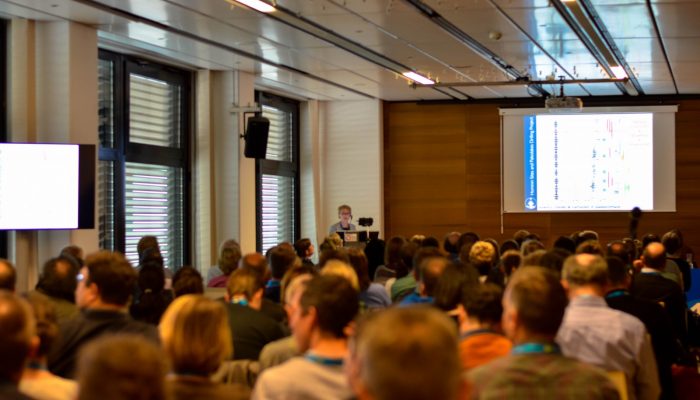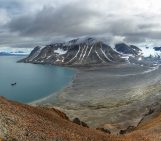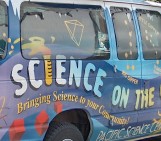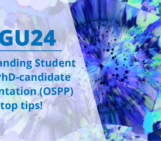
At this year’s General Assembly there are loads of short courses to choose from for broadening your expertise. You can supercharge your scientific skills, broaden your base in science communication and pick up tips on how to boost your career – be it in academia or outside. There is also a course aimed at making your time at the conference easier – be sure to take part, especially if it is your first time! And, if you do attend the short courses, don’t forget to share your experience with other conference participants on social media using the dedicated hashtag: #EGU19SC. Here’s a small selection of what’s in store at EGU 2019:
Supercharge your science – new techniques and dealing with data
- Interactive analysis of Big Earth Data with Jupyter Notebooks (SC1.24)
- A hands-on introduction to Multiple Point Statistics (SC1.29)
- Machine learning for geosciences : data exploration and modelling (SC1.35/ERE8.9/NH10.6/NP10.5)
- Mapping and modelling the environment at different scales (SC1.43)
- Writing and maintaining R packages (SC1.47/AS6.5/CL6.06/GM12.3/HS12.13/NH10.8)
- Social Science methods for natural scientists (SC1.48)
Tips and tricks to boost your career
Being able to secure your own funding for research is key to a successful academic career and will give you important skills applicable to industry jobs too, so why not check out these three grant writing courses?
- How to find funding and write a research grant (SC3.16)
- Horizon 2020 and Horizon Europe: navigating EU funding schemes (SC3.2)
- Funding opportunities: ERC grants (SC3.9)
- How to apply for the Marie Skłodowska-Curie grants Individual Fellowship and European Training Network (SC3.10)
Additionally, you can also improve the chances of landing your dream job by attending these career development sessions.

Check out the career development short courses on offer to learn how you can boost your CV and develop your career! (N.H. Air National Guard photo by Staff Sgt. Kayla Rorick)
- How to peer-review? (SC1.31)
- Make sense of the mess: How to keep your research project on track (SC1.38)
- Academia is not the only route: exploring career options for Earth scientists (SC3.12)
- Everything you wanted to know about AWARDS (but were afraid to ask!) (SC3.14)
- How to make the most of your PhD or postdoc experience for getting your next job in academia (SC3.19)
You can also gain very useful insight from those who have done it before, so why not take part in your Division’s ‘Meet the masters’ session? Here you’ll be able to meet experts in the field who can give you tips on how to get the most out of your career.
- Meet the Experts: Geomorphology (SC3.1)
- Polar Science Career Panel (EGU Cryosphere and APECS co-organised) (SC3.15)
- Meet the Experts: Transit time modeling in hydrology (SC3.5)
- Meet the Experts: The Future of Solar-Terrestrial Research (SC3.7)
Science communication skills
With a growing emphasis on engaging the public with science and research, we have many workshops designed to develop your communication skills.
- How to share your research with citizens and why it’s so important (SC2.1)
- Once upon a time in Vienna: storytelling in science communication (SC2.3)
- Visualizing Science (SC2.7)
- Science communication on hard mode: risk, uncertainty, disasters and controversies (SC2.8)
- Get creative! Sketching and drawing (your) science (SC2.13)
- Sculpt your Research (SC2.14)
Make the most of the conference
Attending the conference for the first time can be daunting, as can be taking the step from presenting to convening a session. Here is a selection of short courses which can help you make the most of the conference, no matter what capacity you attend the conference in!
- Help! I’m presenting at a scientific conference (SC1.12)
- How to convene and chair a session at the General Assembly (SC1.19)
- How to navigate the EGU: tips and tricks (SC3.6)
The EGU General Assembly will take place from 07 to 12 April 2019 in Vienna, Austria. For the full session programme and more information on the General Assembly, see the EGU 2019 website and follow us on Twitter (#EGU19 is the official conference hashtag) and Facebook.




